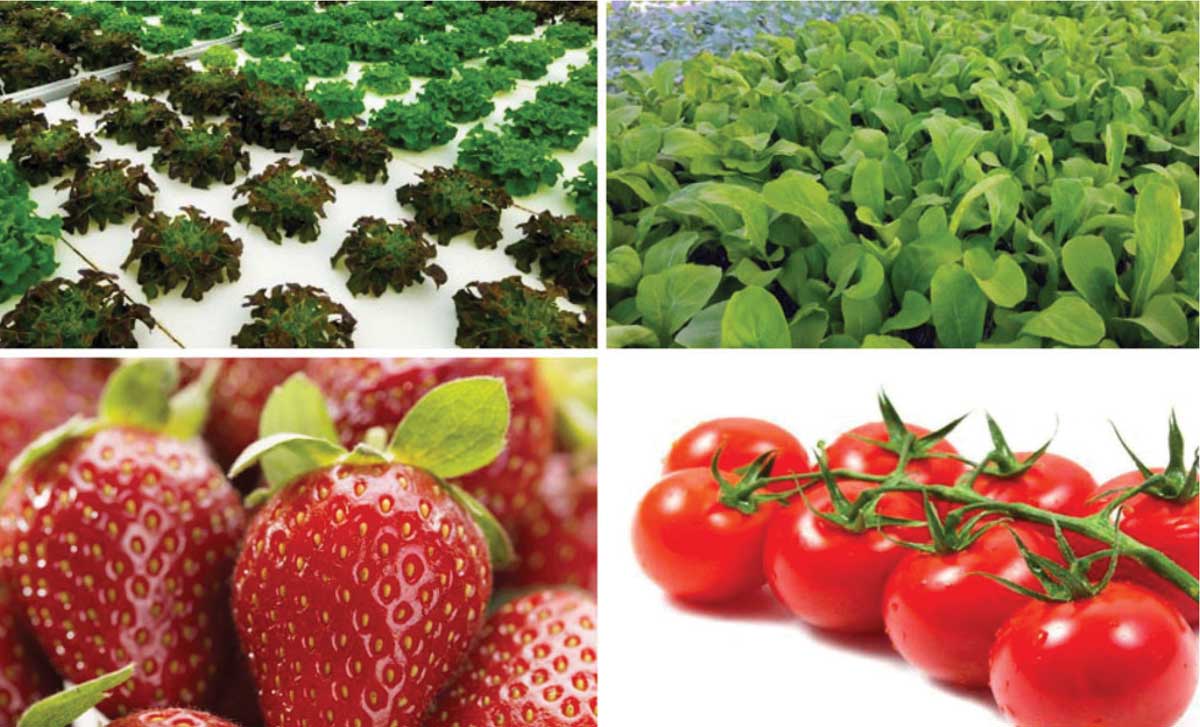Food sustainability in the Caribbean has been a hot topic for years. While many islands in the Organisation of Eastern Caribbean States (OECS) have varying degrees of agricultural production, hurricanes, floods, and other natural disasters continue to threaten their sustainability and reliable production of affordable fresh produce. Over the past few months, as COVID-19 has shifted the global landscape, the cost of agricultural produce in the Caribbean has become increasingly unstable.

The OECS Sustainable Development Movement Summit 2021 is a platform for, among other things, conversations surrounding regional sustainable development across all sectors, including agriculture, and in recent times, the innovative work of Alquimi Renewables, LLC (“Alquimi”) and its farming operations group, Island Growers Caribbean© (“IGC”), have joined that conversation.
The teams at Alquimi and IGC are implementing a unique business model to radically improve and protect how fresh produce is grown in the Region. This model focuses on producing imported ‘cold weather’ crops in proprietary, climate smart hydroponic greenhouse farms. IGC intends to improve food quality, use organic farming practices, and ensure a consistent supply of produce to regional markets throughout the year by the use of these newly developed, 100% climate resilient greenhouse systems.
Alquimi and its strategic engineering and manufacturing partner, Sprung Structures Ltd.™, developed this highly specialized greenhouse system – IAT/Sprung Climate Smart Greenhouse – to support IGC farming projects throughout the Caribbean and other island states affected by severe climate threats.
“Our greenhouse system represents the new standard in climate resilience, which is critical to operating and insuring commercial farm operations in regions constantly threatened by cyclonic wind events and flooding. These are the strongest greenhouse systems in the world – and the only system that is engineer-certified to 175mph sustained wind loads and 202mph gusts, as well as being earthquake, flood, and pestilent resistant. We can now grow food during a major hurricane event” states Ralph Birkhoff, Co-Founder and CCO of IGC.
IAT-Sprung Climate Smart Greenhouse in Barbados – naturally aspirated and Cat5 hurricane resistant
Inside these greenhouses, IGC employs a customized, sub-tropical Shallow Aggregate Ebb-and-Flow (SAEF) hydroponic system, which delivers the highest potential crop yields. While using a fraction of the energy and water required by other hydroponic systems. “Energy costs are extremely high in most Caribbean islands, and fresh water is always a limited resource, so our farms employ low energy production systems and advanced water control systems to reduce our overall cost of production. As we expand our farms, we will also integrate solar energy generation to reduce operational cost.” The totally integrated greenhouse systems are naturally aspirated, requiring no evaporative cooling or HVAC systems thus saving energy costs, and reducing the risk of humidity related plant damage.
“Low tech greenhouses and protected agriculture have been used for decades in the Caribbean, but tropical storms and hurricanes have destroyed all former versions and very few of them were rebuilt. We’re introducing state-of-the-art Agtech to the region for the first time to provide a truly sustainable food production solution.” Alquimi designed its integrated greenhouse systems specifically for the Caribbean region, taking into account all of the inherent risk factors.
IGC intends to build a farm on every island in the Caribbean Region over the next several years. It is seeking to form partnerships with local landowners, farmers, and/or off-takers, and plans to operate independently in each jurisdiction. By the end of 2021, IGC expects to have four farms operating in the following islands: Barbados, Trinidad & Tobago, Antigua and Barbuda, and Saint Lucia. It is also developing a dedicated resort farm project in Anguilla, as well as third-party projects in Puerto Rico and Belize using the IAT technologies.
Alquimi recently formalized a major strategic investment partnership that will allow it to implement an aggressive expansion strategy across the Caribbean islands. Under the new Berrycove Limited investment fund established in Trinidad and Tobago, Alquimi and IGC will start immediately with the first phase buildout of the largest commercial greenhouse farm in the region on a fifteen-acre site at Cove Estate, Tobago.
Managing Director of Berrycove, Ralph Birkhoff, stated: “This new strategic partnership is the culmination of years of effort by our company to access a significant capital fund and the partner support required to expand our farms across every island in the region. To accomplish this with strong regional partners who share our vision right here in Trinidad and Tobago, is extremely meaningful to us.”
Phase 1 of Berrycove Tobago farm includes 42,000 sf of greenhouse systems.
The new Tobago farm aims to produce 45,000 pounds of various berry fruits including strawberries, blueberries, raspberries, and blackberries, in addition to a selection of organic greens for fresh local supply and potential export to neighbouring markets on a monthly basis. Berrycove intends to expand the farm up to 15 acres, and to add a processing plant to prepare frozen berries for export throughout the region.
“Our mission is to introduce a higher level of protected agriculture technologies designed specifically for the Caribbean region to overcome the multiple risks of farming in this part of the world and [to] start building national food security, reduce food imports, and offer a much higher quality of fresh produce,” stated Birkhoff.
Commenting on the work of Alquimi and IGC in the Caribbean, Birkhoff said,
“Climate change is the biggest threat facing our region. The impact of climate change today is evident in the intensity of storms and changes in the environment we experience. Solutions that promote sustainable food production while creating jobs for Caribbean people are Win Win opportunities for islands in the OECS.”





